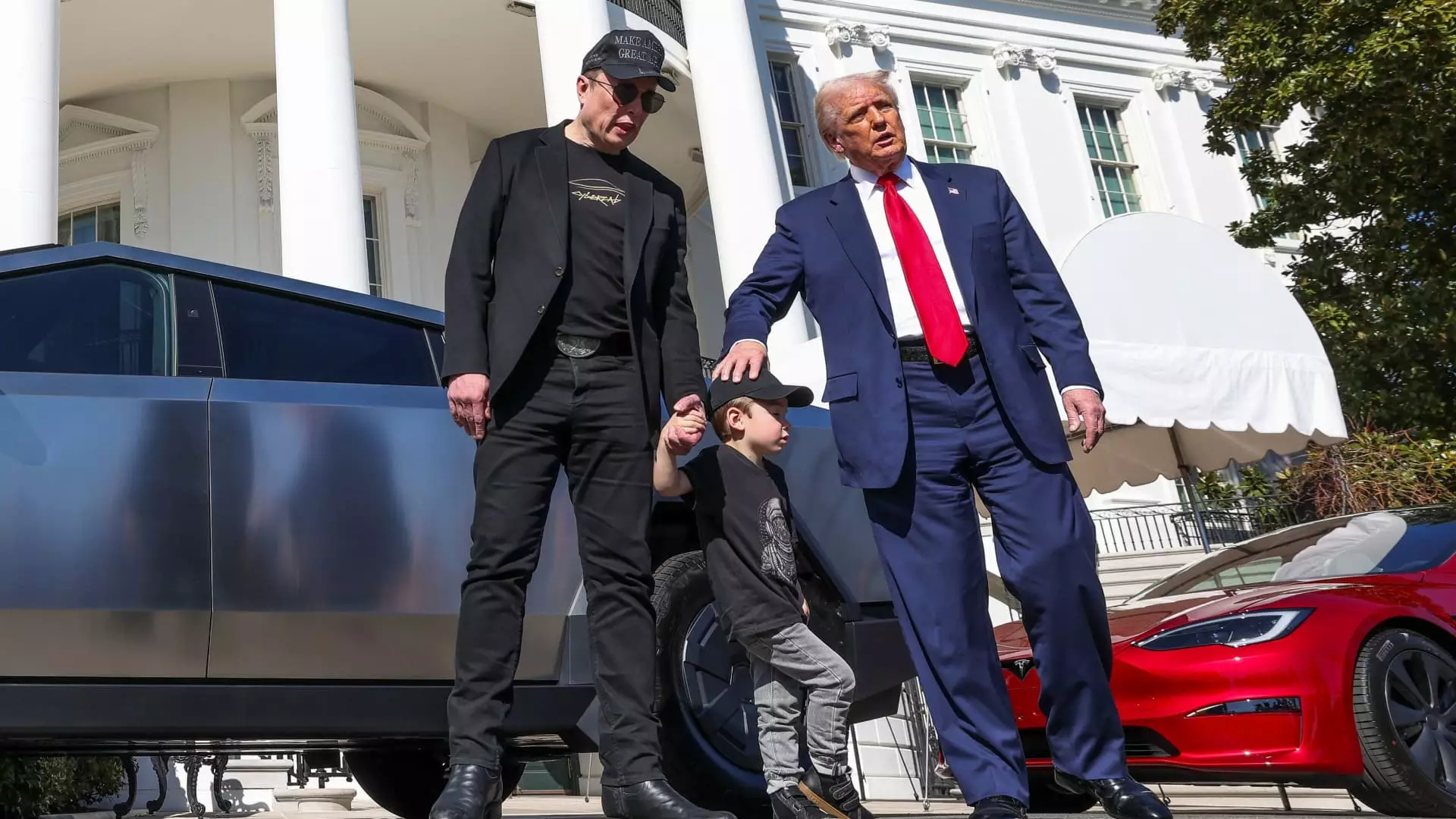On a recent earnings call, Elon Musk vocally articulated his disdain for high and volatile tariffs but maintained a concerning level of realism regarding their influence on Tesla and the broader economy. His comments reflected a certain frustration, particularly given the perpetual uncertainty that tariffs generate, complicating business operations across sectors. Musk is acutely aware that while he holds a unique position as an advisor to the current U.S. president, he acknowledges that the ultimate decisions regarding tariffs rest solely with the Oval Office. This delineation of responsibilities highlights a critical point: stakeholders in the global economy often find themselves at the mercy of governmental decisions made in a bubble.
Musk has pointed out that Tesla boasts a relatively resilient supply chain compared to traditional U.S. automakers. The strategic localization of production facilities across North America, Europe, and China allows Tesla to weather tariff storms better than many. Nevertheless, the sentiment of being “least affected” does not cushion the shocks delivered by a 20% drop in automotive revenue year-on-year or a staggering 71% drop in net income. Such dismal earnings could signify a looming storm, and Musk’s assertive confidence may mask deeper vulnerabilities within Tesla’s operations.
The Disconnect Between Vision and Reality
As an icon of innovation, Musk often embodies the dichotomy between aspiration and pragmatism. While advocating for “lower tariffs” and “predictable tariff structures,” he finds himself amid a chaotic economic landscape that, ironically, undermines his firm’s profitability. This paradox reflects a broader issue facing tech-savvy disruptors in traditional industries: lofty visions may falter under the weight of external pressures, like tariffs imposed by governments seemingly indifferent to the nuances of the automotive supply chain. Musk’s tension with Peter Navarro, a prominent trade adviser, further illustrates the confusing narrative—that even those closest to the corridors of power can find themselves at odds with prevailing policies and their implications.
Tesla’s stock has undoubtedly felt the brunt of this economic turbulence, suffering a 36% decline in the first quarter, primarily due to ravenous market reactions to tariffs. These figures not only signal investor anxiety but also spotlight the increasing difficulty new-age companies face in maintaining a confident front amid unpredictable regulatory landscapes. Nonetheless, Musk’s bullish attitude can occasionally obscure the very real threats posed by fluctuating tariffs, especially for a company like Tesla that leans heavily on foreign materials for production.
The Energy Sector: An Unforeseen Flashpoint
Musk’s insights extend beyond automotive manufacturing; he acknowledged an “outsized” impact of tariffs on Tesla’s energy business, which relies on materials sourced predominantly from China. With significant dependencies on lithium iron phosphate battery cells, any tariff imposition disrupts not only supply chains but also Tesla’s ambitions to dominate the energy storage market. Musk’s endeavor to localize production by investing in battery manufacturing facilities within the U.S. shows a proactive approach. Yet, the challenge remains daunting, highlighted by his candid acknowledgment that current operations only tap into a fraction of Tesla’s potential capacity.
Transitioning to non-China-based suppliers will be a long journey, revealing a crucial truth that the road to independence from external supply chains is fraught with complications. His statement, “we’re not growing rubber trees and mining iron yet,” acts as a stark reminder that while Musk envisions a self-sufficient operation, realities of resource acquisition often dictate otherwise, tethering ambitions to fragile global networks.
The Future: Integration with Caution
Musk’s declaration of Tesla being the most “vertically integrated car company” is indeed noteworthy, yet it raises further questions about the mid- to long-term sustainability of such claims amid frequent economic fluctuations. While vertical integration can lessen dependencies, it also requires relentless innovation and investment—elements that demand financial stability, something currently under threat due to market volatility exacerbated by tariffs.
Musk presents a flawed but fascinating portrait of modern entrepreneurship. His advocacy for free trade and lower tariffs embodies the ideal of a global market, yet he and Tesla, as pioneers within the auto industry, are caught in the crosshairs of policy decisions that wield the power to shape their trajectory. It is this challenging dynamic and the uncertainty it brings to the marketplace that demands a closer examination of what the future holds for Musk and Tesla in an increasingly protectionist world.


Leave a Reply